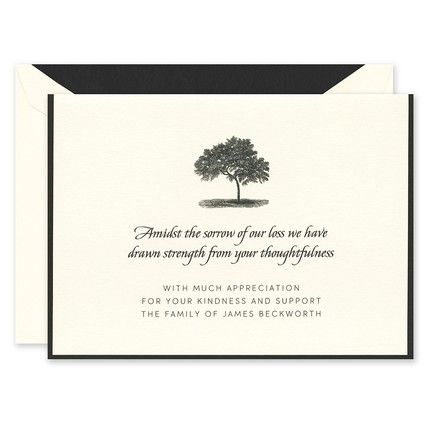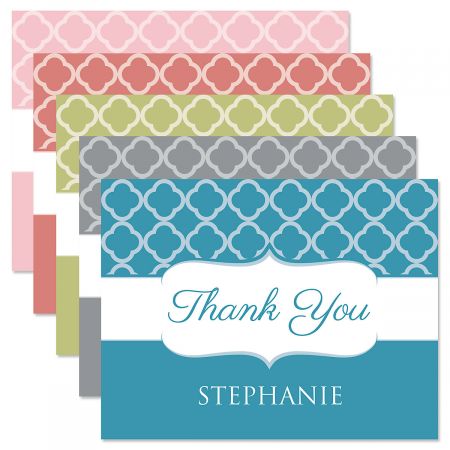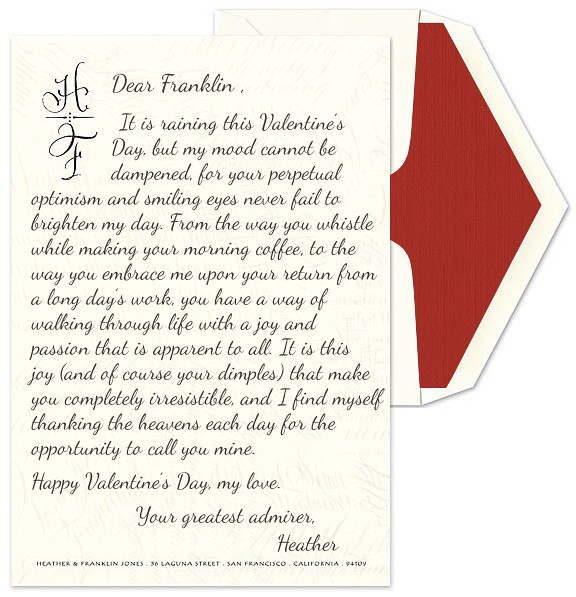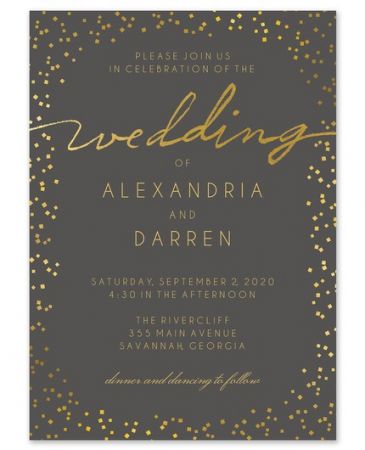We recently received a request from a customer asking for advice on how to write an appropriate sympathy note, as well as tips for writing a thank you note following a funeral.
No one likes to think about a loved one passing on from this life, but when it happens, it may feel as if there are no words that can accurately express how you feel. Whether you are writing a sympathy note to someone in mourning or a thank you card to those who supported you in your own time of need, being open and real about how you feel is the best place to start. Here are a few tips and examples on how to write an appropriate note during the more difficult times in life:
Sympathy Note
- It is best to send a sympathy note immediately, but much like thank you notes, it is never too late. Those in mourning will appreciate your thoughtfulness, and your late-note may come at just the right time for him or her.
- Be gentle with the way you word things, careful to speak highly of the individual who has passed. You may want to mention a thing or two you admired about the person.
- Include a fun story or memory about the deceased if you have one—those mourning will appreciate the opportunity to remember the good times.
- If you live nearby, offer your services and your company. It is helpful to be surrounded and cared for by friends and family after a loss. This is particularly important for the elderly if they’ve lost a spouse.
- Always hand-write a sympathy note, as it feels more heartfelt.
Example:
Dear Ella,
Please accept my sincere condolences on your recent loss. Jack was a wonderful man who will be dearly missed by all who knew him.
I’ve always admired his positive outlook on life and will remember him for the great kindnesses he showed to others. Remember the time he drove 30 miles to help dig me out of a snowdrift? What a saint he was that day!
Please know that we are always available to you for whatever it is that you may need. In fact, I was hoping I might be able to stop by with some of your favorite casserole next week. I’ll be in touch to set up a time.
Sincerely,
Tabitha
Thank You Note
- Thank you notes should be written to anyone who sent you flowers, provided you and your family with a meal, gave a great deal of emotional support or helped with funeral arrangements.
- There is no solid time frame for when you should have your thank you notes finished. It is generally accepted that you will need a period of mourning before you can return to your regular social responsibilities. Write them when you feel you are emotionally stable enough to complete the task.
- Graciously accept help from friends and family. They will appreciate the opportunity to assist you in the areas they can.
- If one of your friends or family members were close with the deceased, try and insert a line or two about how much that person meant to him/her in the thank you note. For example, “Jack always cherished his days in the army infantry and considered you one of his best friends.”
Example:
Dear Tabitha,
Thank you for all the emotional support you provided in the weeks following Jack’s funeral. It was so nice to have the company of one of my dearest friends during such a difficult time.
Jack always thought very highly of you and your husband, Danny. I’m sure he is happy to see that you came to my rescue after he departed.
Again, thank you for being such a good friend and spending extra time with me during those lonely first days. I greatly appreciated your company and look forward to our weekly casserole nights.
Sincerely,
Ella
It is always difficult to consul a friend when they are having a hard time. A sweet note is always a good way to show that you care. Let us know in the comments if this article helped you express your condolences to a friend, co-worker of family member.







